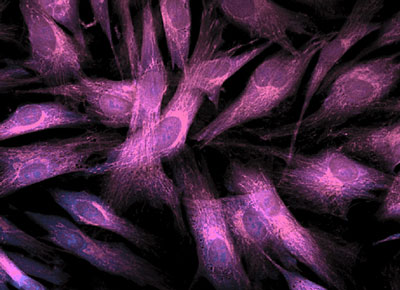New class of inhibitory compounds aid melanoma treatments
Posted: 3 December 2015 | Victoria White | No comments yet
Using cell cultures of melanoma, researchers showed that these acid ceramidase inhibitors make melanoma cells more prone to be killed…


Researchers from the University of California, Irvine (UCI) and the Italian Institute of Technology have created a class of inhibitory compounds that can strongly enhance the effect of anti-tumour drugs for melanoma.
In doing so, the scientists identified how an enzyme called acid ceramidase can accelerate tumour growth in this deadly form of skin cancer.
In skin biopsies of stage 2 melanomas, they found that acid ceramidase is highly activated. This hyperactivity disrupts a normal cell process called apoptosis, which ensures the continued function and growth of normal cells. Without this process, mutated, cancerous cells are able to proliferate.
The complex processes that acid ceramidase mediates become unbalanced when this enzyme is hyperactive in melanoma cells.
The researchers have reported the success of a class of molecules that inhibit acid ceramidase. Using cell cultures of melanoma, they showed that these compounds make melanoma cells more prone to be killed. In other words, the compounds act like multipliers that boost the deadly effects of conventional anti-tumour agents.
While there is still much to be learned about the roles of acid ceramidase and how its inhibitors work, researchers believe that blocking this enzyme puts cancerous cells onto a path that can lead to apoptosis.
Healthy tissue surrounding melanoma can rapidly destroy the new compounds
One feature of the new compounds is that they are built so that healthy tissue surrounding the melanoma can rapidly destroy them. This means that when they’re applied directly on a skin tumour, the compounds cannot spread to other organs or tissue where they might cause unexpected harm.
“Melanoma is one of the most aggressive forms of human cancer, with very poor prognosis if not diagnosed at early stages,” said Daniele Piomelli, the Louise Turner Arnold Chair in the Neurosciences at UCI. “With further development, we see these inhibitors being incorporated into topical treatments such as creams that can become part of an aggressive melanoma treatment programme.”



